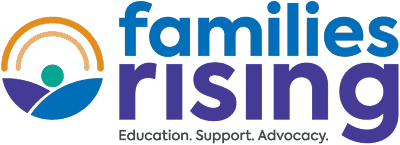Transracial adoptions continue to grow in the United States, and transracial adoptions have outpaced the growth of same race adoptions. Between 2005-2007 and 2017-2019, the number of transracial adoptions increased by 58% while the number of same race adoptions increased by 24%. Currently, 28% of all adoptions are transracial or transcultural. Within Alameda County Department of Children and Family Services (ACDCFS) in California (where I work as an Adoptions Child Welfare Supervisor), 45% of all adoptions between 2016 and 2020 were transracial or transcultural (meaning a child who is of one race or ethnic group is adopted by parents of another race or ethnic group).
Children adopted transracially benefit from having role models that reflect their heritage of birth and culture, and as Child Welfare professionals we have a responsibility to prepare caregivers to meet all of a child’s needs, including racial identity needs, over the course of their lifespan.
I first became interested in transracial adoption after multiple Adoption Child Welfare Workers reported being the first case-worker to discuss race and children’s racial identity needs with caregivers. I examined this issue further after I was selected to participate in the Minority Professional Leadership Development (MPLD) fellowship through Adopt US Kids in 2021. The year-long MPLD fellowship consisted of two parts; the first was to prepare and develop minorities to be transformational leaders in child welfare and the second part included the completion of an Action Research Project (ARP) on a topic related to adoption or guardianship that is critical to their agency.
For my ARP, I developed and implemented the Transracial Adoption Conversations (T.R.A.C.) Coaching Model to increase CWWs skills and comfort in providing support and assistance to caregivers that are fostering or planning to adopt transracially. The T.R.A.C. Model is a 5-part coaching model that uses vignette examples of development specific issues that could arise during case management to address concerns regarding race and specific racial identity needs. I believe that all Child Welfare Workers (CWWs), not just in the Adoption program, have a responsibility to assess for potential issues regarding transracial placements and adoptions, assess racial identity matters, and support the family in meeting the child’s racial and cultural needs.
Implementing a New Conversation
The specific question that I wanted to address with my ARP was: If Child Welfare staff participate in a specific training on transracial adoption, adoptees’ experiences and anti-racist service provision, followed by participation in a developed coaching model that includes, simulations/vignettes, guidelines for coaching of parents around topics related to transracial adoption, including racial and cultural identity, will it improve staff’s comfort and skills in discussing race and racial identity with caregivers?
The first step in answering this question was to partner with PACT, an adoption agency and organization based in Emeryville, California, to provide a training specifically for Child Welfare professionals. PACT serves adopted children of color and specifically “advocates for honesty and authenticity in matters of race and adoption”. PACT’s training included a panel of adults who were adopted transracially discussing their experiences, as well as direction for how Child Welfare professionals can provide anti-racist services to family and children. In total, 67 staff members from my agency participated in the training! The opportunity to participate in the T.R.A.C. coaching model was offered to staff who attended the PACT training to continue to develop skills for these important conversations with staff, families and children.
In total, 10 CWWs and 7 management staff (consisting of Child Welfare Supervisors and Program Managers) volunteered to participate in the coaching model to increase their comfort and skills in discussing race and racial identity. ACDCFS graciously purchased a variety of books, coloring books and dolls to help staff begin and lean deeper into conversations on race and children’s racial needs!
One CWW reported bringing one of the books to a recent home visit, which led to a thoughtful conversation about how the White grandparents would meet their biracial grandson’s racial identity needs, including discussing race and differences with him and the need for him to see people who look like him. Additionally, I partnered with ACDCFS Field Advisor/Coaches to implement the coaching model and facilitate the sessions. The Field Advisor/Coaches engaged staff in earnest and honest conversations about the difficulties they experience discussing race and culture with caregivers, as well as strategies and skills to help them do so in a way that is comfortable. The TRAC model ran for 10 weeks, with each group (CWWs and management) meeting approximately every 2 weeks to discuss a specific developmental stage and how to engage caregivers and children in conversations about transracial parenting and children’s racial identity needs. Each session included case vignettes, media examples, group discussions of experiences and new strategies to discuss race and racial/cultural issues with caregivers.

